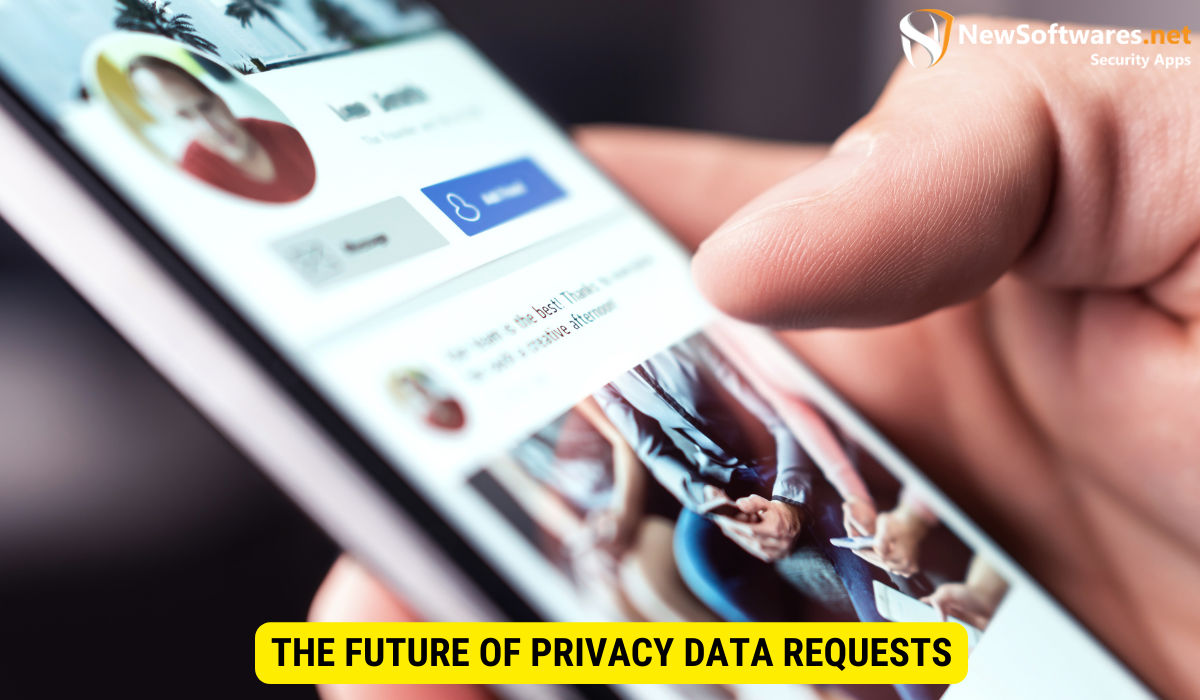Understanding the Concept of Privacy Data

In today’s digital age, privacy data has become an increasingly important concern for individuals. It refers to any information that can be used to identify a person, such as their name, email address, phone number, or even their browsing history. Privacy data is crucial because it contains sensitive details that people want to protect from misuse and unauthorized access.
Privacy data can be categorized into two types – personally identifiable information (PII) & non-personally identifiable information (non-PII). PII includes data that directly identifies an individual, while non-PII consists of information that cannot be used to identify a specific person but may still pose privacy risks when combined with other data.
What Constitutes Privacy Data?
Privacy data encompasses a wide range of information that individuals share with online platforms like Facebook. It includes individual details such as full name, date of birth, location, email address, phone number, and social security number. Additionally, it may also include browsing history, search queries, interests, likes, and connections, which contribute to creating a comprehensive profile of an individual.
Why is Privacy Data Important?
Privacy data has tremendous value, both for individuals and the organizations that collect it. For individuals, protecting their privacy data is crucial to safeguard their personal information, prevent identity theft, and maintain their online security and reputation. On the other hand, organizations utilize privacy data to enhance their marketing strategies, personalize user experiences, and better target their advertisements.
However, the misuse or mishandling of privacy data can lead to harsh consequences, including identity theft, fraud, unauthorized access, and breaches of trust. Therefore, it is crucial for individuals to have control over their privacy data and be aware of how it is being used by online platforms like Facebook.
The Rise in Privacy Data Requests
In recent years, there has been a significant increase in the number of individuals requesting their privacy data from Facebook. This increase can be attributed to various factors that have heightened concerns regarding privacy and data security.
Factors Leading to Increased Requests
One of the important factors driving the increased privacy data requests is the growing awareness and understanding among individuals about the importance of their privacy. As people become more informed about the implications of sharing their personal information online, they seek to exercise their rights and gain better control over their privacy data.
Furthermore, high-profile data breaches and privacy scandals involving major tech companies have raised public concerns about the handling and security of personal data. Incidents like the Facebook-Cambridge Analytica scandal have underscored the need for transparency and accountability in data practices, leading to a surge in privacy data requests.
The Role of Data Breaches in Privacy Concerns
Data breaches have played a significant role in amplifying privacy concerns and driving individuals to request their privacy data from Facebook. Large-scale data breaches, where hackers gain unauthorized access to personal information, have become alarmingly common. These breaches not only expose individuals’ sensitive data but also erode trust in online platforms’ ability to protect privacy.
As a response to these breaches, individuals are becoming more proactive in taking charge of their privacy and requesting their data from Facebook, seeking reassurance that their information is secure and properly managed.
Facebook’s Response to Privacy Data Requests
Recognizing the importance of privacy, Facebook has implemented a data request process that allows individuals to access and download their personal information. This process ensures transparency and empowers users to understand and control the data connected to their accounts.
Facebook’s Data Request Process
Facebook’s data request process is designed to be user-friendly and accessible to individuals. Users can navigate to the platform’s settings, locate the “Download Your Information” option, and submit a request for their privacy data. Once the request is submitted, Facebook compiles the requested data into a downloadable file, which includes information such as profile details, posts, messages, and settings.
This data request process serves as a tool that allows users to review and manage their privacy settings, evaluate the information Facebook holds, and make informed decisions about their online presence.
The Challenges in Retrieving Personal Data
While Facebook has made strides in providing individuals with access to their privacy data, there are challenges involved in retrieving personal information. The sheer volume of data stored by Facebook, coupled with the complexity of its algorithms, poses difficulties in presenting information in a digestible format.
Additionally, as individuals interact with various features on the platform, including third-party applications and advertisements, retrieving a complete and comprehensive dataset can be a daunting task. Nevertheless, Facebook continues to refine its data request process to address these challenges and ensure users have greater control over their privacy data.
The Global Impact of Privacy Data Requests
Privacy data requests not only impact individuals and companies in the United States but also have a global reach. Governments and regulatory bodies around the world have recognized the significance of privacy data and implemented laws and regulations to protect individuals’ rights.
Privacy Laws and Regulations Around the World
Countries like the European Union member states have implemented the General Data Protection Regulation, which grants persons several rights, including the right to access their personal data. The GDPR has set a precedent for other nations and organizations worldwide, emphasizing the importance of transparency and accountability in data handling.
Additionally, countries such as Canada, Australia, and Brazil have enacted their own privacy legislation, each with varying provisions and requirements. These laws aim to safeguard individuals’ privacy rights and ensure that their data remains protected.
The Effect on Other Social Media Platforms
The impact of privacy data requests is not limited to Facebook alone. Other social media platforms and tech companies have also faced increased scrutiny and demands for improved privacy practices. This collective demand for transparency and data control reflects a broader shift in societal values towards privacy and data protection.
As a result, companies across the industry are taking steps to enhance privacy features, provide clearer opt-in choices, and facilitate data requests. The increased focus on privacy data requests has created a ripple effect, promoting a more user-centric approach to data management among social media platforms.
The Future of Privacy Data Requests

As technology continues to evolve, privacy data requests are likely to remain a critical aspect of individuals’ online experiences. Several trends and developments are expected to shape the future landscape of privacy data requests.
Predicted Trends in Data Privacy
One of the key trends is likely to be an increased emphasis on user consent and control over privacy data. Regulations and companies will likely focus on obtaining clear consent from individuals before collecting and using their data. This shift will empower users and enable them to make informed decisions about their privacy.
Furthermore, advancements in data encryption and privacy-enhancing technologies are expected to bolster the security of individuals’ privacy data. These technologies will play a vital role in protecting personal information and minimizing the risk of unauthorized access or data breaches.
How Facebook Plans to Address Future Requests?
Facebook is committed to addressing future privacy data requests and ensuring user satisfaction. The company is continually enhancing its data request process and providing users with more transparency and control over their privacy data.
Facebook aims to simplify the data request process further, making it more intuitive and comprehensive for users. The company also plans to prioritize user feedback and incorporate user preferences in privacy settings to provide a more tailored and personalized experience.
Key Takeaways
- Privacy data consists of personally identifiable information (PII) and non-personally identifiable information (non-PII) that individuals share with platforms like Facebook.
- The rise in privacy data requests is driven by increased awareness, high-profile data breaches, and concerns regarding data security.
- Facebook facilitates privacy data requests through its user-friendly data request process, granting users access to their personal information.
- Privacy laws and regulations around the world, like the GDPR, emphasize the importance of transparency and accountability in data handling.
- The future of privacy data requests will likely involve increased user consent, enhanced data security, and improved user control over privacy settings.
Frequently Asked Questions
Why is privacy data important?
Privacy data is important because it contains sensitive details that individuals want to protect from misuse and unauthorized access. It helps maintain online security, prevent identity theft, and safeguard personal information.
What is personally identifiable information (PII)?
Personally identifiable information (PII) refers to data that directly identifies an individual, such as name, email address, phone number, or social security number.
What is the role of data breaches in privacy concerns?
Data breaches highlight vulnerabilities in data protection and erode trust in platforms’ ability to safeguard personal information. They motivate individuals to request their privacy data and seek reassurance about the security of their information.
How does Facebook respond to privacy data requests?
Facebook has implemented a data request process that allows entities to access and download their personal information. Users can navigate to the platform’s settings and submit a request for their privacy data.
What is the future of privacy data requests?
The future of privacy data requests will likely involve increased user consent, enhanced data security, and improved user control over privacy settings. Advancements in data encryption and privacy-enhancing technologies will play a crucial role in protecting personal information.
Conclusion
The increasing number of individuals requesting their privacy data from Facebook reflects a growing awareness and concern for protecting personal information. Privacy data is crucial in today’s digital age, and individuals have the right to access and control their data. Facebook’s data request process serves as a tool for empowering users and promoting transparency in data handling practices. This rise in privacy data requests has prompted global discussions about privacy laws and regulations and encouraged other social media platforms to prioritize user privacy. Looking ahead, privacy data requests will continue to be essential, and advancements in technology will shape the future landscape, enhancing data security and user control.
